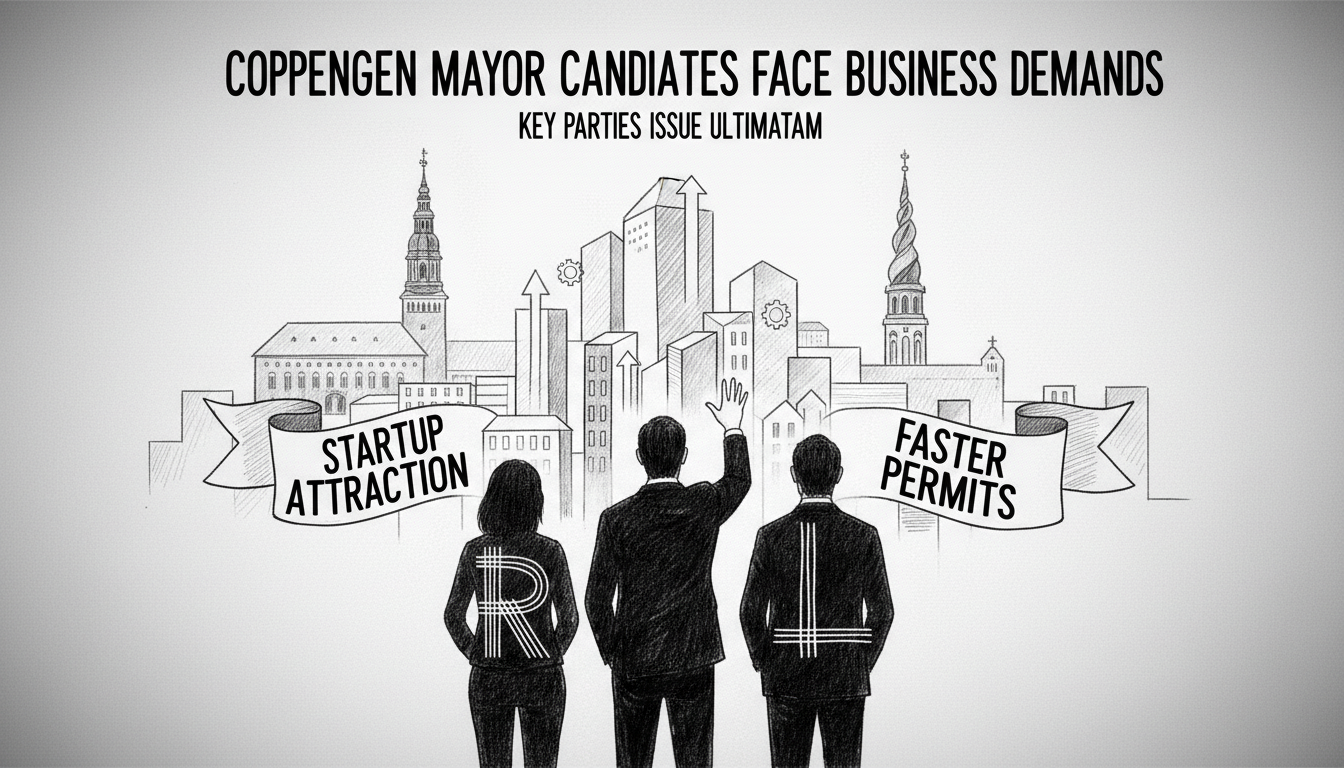Two influential political parties are setting strict business requirements for Copenhagen's next mayor. The Radical Liberals and Liberal Party say they will only support a mayoral candidate who commits to specific economic growth measures.
Christopher Røhl, lead candidate for the Radical Liberals, stated their position clearly. He said their support depends on getting a mayor who will create more jobs and attract economic activity to the city.
Copenhagen ranks poorly in business friendliness among Danish municipalities. Official data places the capital at position 74 out of 91 municipalities. The number of entrepreneurs has dropped to its lowest level since 2015.
Both parties want Copenhagen to become the Nordic region's growth engine. They demand the city become better at attracting startup companies, capital funds, and international workforce.
The proposed business requirements include concrete changes to municipal operations. They want more public tasks put out to tender and contracts divided into smaller parts. This would allow small and medium-sized businesses to compete effectively.
Processing time for building permits and other approvals would face strict limits. The parties propose maximum 30-day processing for all construction matters and permits.
A new innovation manager position would identify and remove municipal barriers. This role would connect businesses and capital to specific projects. It would also ensure solutions developed within the municipality don't remain unused.
Business districts would see increased private sector involvement. Companies would co-finance public spaces, operations, and development in selected commercial areas. This approach aims to make investments produce results faster.
The political landscape adds significance to these demands. Current polling shows the Red-Green Alliance and Socialist People's Party gaining ground over the Social Democrats. These three parties appear likely to share power positions between them.
This makes the Radical Liberals' mandates potentially decisive. Their support could prove crucial for any mayoral candidate seeking broader backing.
Røhl suggested possible implementation methods. The mayor could delegate handling of these requirements to an administration potentially led by one of the two parties. Alternatively, parties could sign a binding agreement.
He emphasized the need for certainty in delivery. Candidates for the mayor position must propose how they would meet these business demands. The parties want concrete assurances rather than vague promises.
Copenhagen faces genuine economic challenges despite its popularity. The city attracts tourists and new residents consistently. Yet its ability to draw business investment and create sustainable jobs needs improvement.
This political move reflects broader concerns about Copenhagen's economic competitiveness. Other Nordic capitals like Stockholm and Oslo have implemented successful business attraction strategies. Copenhagen risks falling behind in regional economic competition without focused action.
The business requirements represent a pragmatic approach to urban governance. They combine specific operational changes with strategic vision for economic development. How mayoral candidates respond will shape Copenhagen's economic trajectory for years.
International businesses watching Copenhagen will note these developments. The city's ability to implement business-friendly reforms affects its attractiveness for foreign investment. The outcome could influence similar debates in other Nordic cities facing economic transition challenges.

